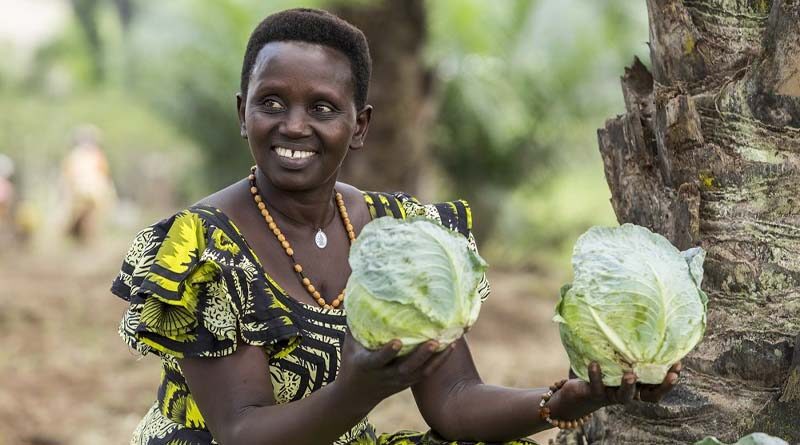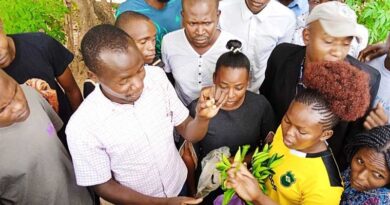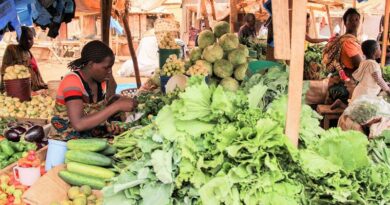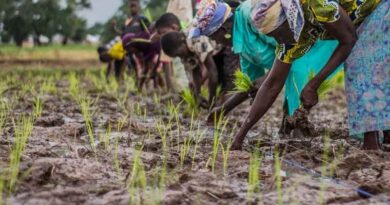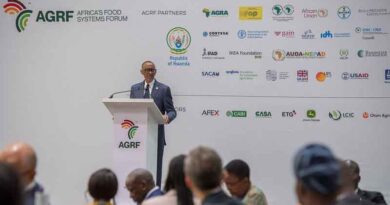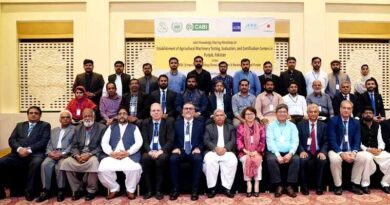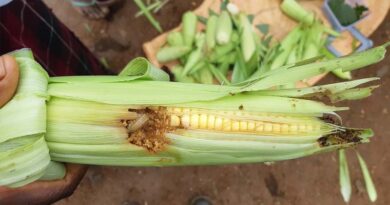Importance of women and youth in African agriculture highlighted at 6th Africa Agri Expo 2023
16 February 2023, Africa: CABI has highlighted the importance of women and youth in African agriculture at the 6th Africa Agri Expo 2023 held recently in Nairobi, Kenya.
The conference brought together African and global agriculture professionals to explore the market, introduce their brands, make new connections and create long-term strategic partnerships within the continent’s agricultural sector.
Dr Morris Akiri, CABI’s Senior Regional Director, Africa, told the conference that while women, for instance, play a significant and increasing role in agriculture in Africa – making up 55% of the workforce – they have limited decision making in production and income.
Dr Akiri was speaking from a presentation produced by Bethel Terefe, CABI’s Gender Coordinator, who also recently led on a paper looking at gender differences in the uptake of a biological control agent to tackle Helicoverpa armigera on tomato in Pakistan.
Abigael Mchana, Communications Officer at CABI’s regional centre for Africa in Nairobi, also greeted visitors to a stand at the two-day event where she highlighted CABI resources and its work to help farmers increase their yields and livelihoods.
This included the CABI BioProtection Portal which is a free tool that enables users to discover information about registered biocontrol and biopesticide products around the world to fight a range of potentially devastating crop pests and diseases.
Dr Akiri added that CABI, as part of one of the goals of its Medium-Term Strategy 2023-25, is committed to reducing inequality through better opportunities for rural women and youth. This includes creating new jobs, equitable access to digital and face-to-face advisory services and enhancing the adoption of technology by women.
Dr Akiri said, “CABI recognises the very important role that women and youth play in Africa’s agricultural sector – making significant contributions to the economy and food security. For example, in Ghana alone, women are responsible for 70% of the country’s food production.
“However, we know that there is a gender productivity gap that needs to be bridged if women are to be given greater prominence in terms of decision making – and that includes more land rights – if Africa is to reach its full potential. Closing the gap, for instance will lead to a 19% production increase in Rwanda, 7% in Malawi and 1.4% in Ethiopia.”
Ms Terefe said CABI, as part of the PlantwisePlus programme, is already adopting a more gender-focused approach to rural advisory services, capacity building and advocacy in Ghana – assessing where improvements can be made.
“This includes looking at the gender sensitivity of the organizational structure of extension service providers and at the individual level the skills, attitudes and motivations of extension managers, extension agents and clients’ perceptions of advisory services,” she said.
Ms Terefe points out that women and youth face issues not only with land but with their labour, finance, agricultural advisory services and the food value chain and markets.
In respect of land, for instance in Burundi, women usually do not have land titles due to customary practices that limit inheritance rights, rights of single, widowed women to land and women, therefore, cultivate land mostly in their husband’s name.
Accordingly, in terms of access to finance – women have limited access to credit and insurance due to their limited ownership of assets, lower literacy levels, limited mobility and social norms. Only 37% of women in Africa have bank accounts compared to 48% of men.
Meanwhile in Ghana, only 9.5% of women regularly accessed extension advice frequently compared to 34.4% of men and women – in respect of the value chain and market – are under represented in transportation, marketing and sales.
“By working in partnership, we are determined to create greater opportunities for both women and youth to contribute and have greater power and recognition for their efforts towards the food value chain in Africa,” Ms Terefe added.
Also Read: Developing Agricultural Research Institutes
(For Latest Agriculture News & Updates, follow Krishak Jagat on Google News)

